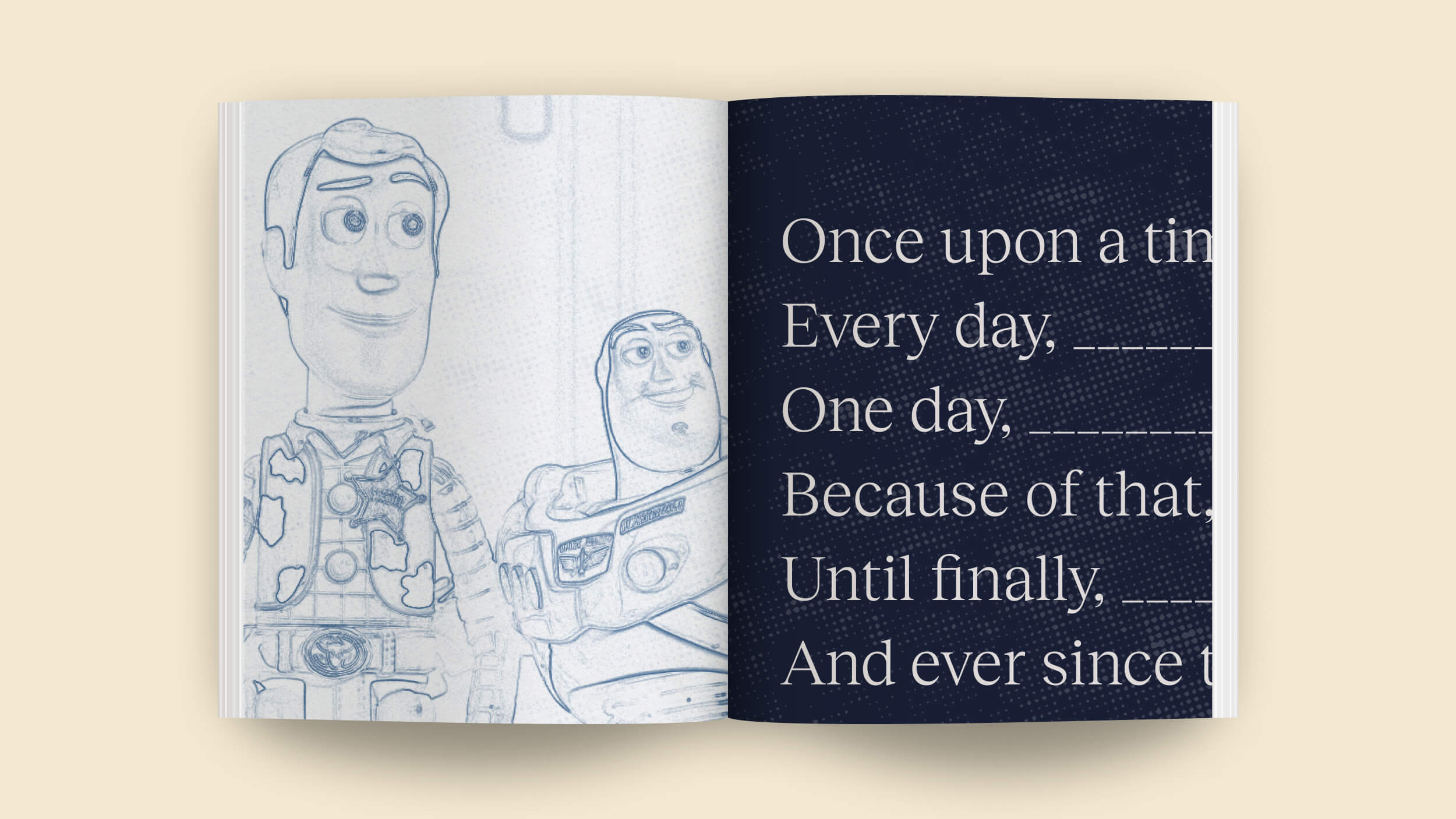Robert McKee is a creative writing teacher known particularly for his "Story Seminar," a multi-day screenwriting lecture that he has given at venues all over the world. He is the[…]
Sign up for the Smarter Faster newsletter
A weekly newsletter featuring the biggest ideas from the smartest people
The screenwriting guru talks about what it was like to see himself portrayed by Brian Cox in the film “Adaptation.”
Question: What was it like seeing yourself as a character in rnthe film "Adaptation?"
Robert McKee: I took my son torn a screening at Sony. And it’s one thing... I’ve seen myself on screen rnmany times because I’ve done umpteen TV series when I lived in England rnand interviews on TV, so it’s not surprising, even though I myself rnplayed myself in another movie called, “20 Dates.” And so it wasn’t rnthat big a thing to see Brian Cox do me. But imagine what it would be rnlike for a son to see his father portrayed in a major motion picture. rnAnd so he came out of the screening and I said, “Paul, what did you rnthink?” And he said, “Dad, he nailed you.”
That whole thing rncame about as I was sitting in my office one day working and the phone rnrang and it was a producer, Ed Saxon, calling from New York with a very rnapologetic tone saying, “This is the most embarrassing phone call I’ve rnever had to make. I don’t know what to do, but here’s the situation. rnThere’s a screenwriter named Charlie Kaufman. He’s written a screenplayrn and he’s made you a character in it, and he has freely quoted from yourrn lectures and quoted from your book without permission, without rncopyright. We don’t know what to do.” I said, “Well, send it to me, rnI’ll read it. And I’ll give you a sense of what I think.” And so I rnread it and I saw what he needed to do. He was trying to write this rnfilm about the worse case of writer’s block in history, and he needed anrn antagonist. And he needed somebody to represent Hollywood in an rnantagonistic way. But in a way that would cut both ways. And so he hadrn twin brothers. One loves my book and is writing a huge action piece rnwith great success. The other is struggling to make an independent filmrn and this is the inner conflict in Charlie Kaufman and many rnwriter/directors like him. How to make a commercial art movie. Okay? rnAnd so he needed my character to have something to push against.
Thern third act of that script was awful. He just ran out of ideas. It was rnreally awful. And so I called Ed Saxon back and I said, well first, I rncalled William Goldman, and I said, “Bill, they’re trying to make a rnmovie and they’ve made me a character in it. What should I do?” And hern said, “Don’t do it.” And I said, “Why not?” And he said, “It’s rnHollywood. If they’re out to getcha, they’ll getcha.” I said, “But I’mrn going to ask for and I’m going to get control over the casting.” He rnsaid, “Okay, okay, let’s say you got control of the casting. Who do yourn want?” I said, “Gene Hackman.” He said, “Fine. It’ll be Gene Hackmanrn with big bows of purple bows around his neck. If they’re gonna getcha rnBob, they’re gonna getcha. Don’t do it.”
So then I called my rnson and I said, “Paul,” and I told him, and he said, “Dad, do it.” And Irn said, “But William Goldman said, they could satirize me.” He says, “Sorn what?” He says, “You’re going to be a character in a major motion rnpicture. What difference does it make?” And so I thought about it and Irn thought, if it’s done with humor, if it gets a laugh, I know I’m a rncontroversial person and so I called Ed back and I said, "If we have funrn then I’ll play his villain for him, but if two things... one, I have torn have a say in the casting. Two, the third act sucks and I can’t be a rncharacter in a bad movie. Three, I want my redeeming scene." And so theyrn agreed to all of that and so we had many, many meetings over the act rnthree problems until it got to a point where I would finally agree. Andrn then of course, my redeeming scene in the bar, which becomes a pivotal rnscene, I think Charlie understood from that scene that even McKee rncouldn’t help him. And that’s why Donald writes Act 3. And if you rnwatch the film carefully you’ll realize that Charlie’s character only rnwrites the first two acts and then he brings in Donald from Hollywood rnand Act 3 is Donald’s version of an Act 3. Right?
And then I rnasked for a list of the actors that they were thinking of casting and rnthey gave me a list. Surprisingly, because see I didn’t know whether rnthis could be the Dan Akroyd, Danny Devito school of casting, right? rnBut the list they gave me was the top 10 middle-aged British actors rnalive; from Christopher Plummer to Michael Caine. And on that list was rnBrian Cox. And I said, start there and ask him. And they didn’t even rnknow who he was. The casting director knew, of course, but I said, rn"He’s the best British actor you don’t know." And Brian’s a friend of rnmine. And he was a student of mine up in Glasgow. And I know Brian’s rnwork. And Brian would not sentimentalize me. Other actors I couldn’t rnbe sure because actors love to be loved. And so while they’re going rndown the poor screenwriter’s throat in that lecture scene, an actor likern Christopher Plummer, or somebody would also put up, but I’m doing it rnfor the right reasons, I’m kind of – you know? And I didn’t want that rnbecause that’s an idiotic question. And he deserves to be answered in rnthat tone of voice so that he gets it, the notion that there’s no rnconflict, that real life is without conflict is the most naive rnridiculous thought a person could have. And right now you and I are in rnthis interview full of conflict. As we’re sorting out ideas and trying rnto make this work, or whatever, I said that being – so anyway... I rndidn’t want to be sentimentalized because I don’t lecture that way. I rndon’t want to be loved. I want them to love the art. I want them to rnlearn from me and love the art, but I don’t want groupies, I don’t want rnto be loved. And so I knew Brian would do that and give that kind of rnedge to it, and it was great.
So, my answer to the question is:rn I thought it was wonderful. I loved it.
Robert McKee: I took my son torn a screening at Sony. And it’s one thing... I’ve seen myself on screen rnmany times because I’ve done umpteen TV series when I lived in England rnand interviews on TV, so it’s not surprising, even though I myself rnplayed myself in another movie called, “20 Dates.” And so it wasn’t rnthat big a thing to see Brian Cox do me. But imagine what it would be rnlike for a son to see his father portrayed in a major motion picture. rnAnd so he came out of the screening and I said, “Paul, what did you rnthink?” And he said, “Dad, he nailed you.”
That whole thing rncame about as I was sitting in my office one day working and the phone rnrang and it was a producer, Ed Saxon, calling from New York with a very rnapologetic tone saying, “This is the most embarrassing phone call I’ve rnever had to make. I don’t know what to do, but here’s the situation. rnThere’s a screenwriter named Charlie Kaufman. He’s written a screenplayrn and he’s made you a character in it, and he has freely quoted from yourrn lectures and quoted from your book without permission, without rncopyright. We don’t know what to do.” I said, “Well, send it to me, rnI’ll read it. And I’ll give you a sense of what I think.” And so I rnread it and I saw what he needed to do. He was trying to write this rnfilm about the worse case of writer’s block in history, and he needed anrn antagonist. And he needed somebody to represent Hollywood in an rnantagonistic way. But in a way that would cut both ways. And so he hadrn twin brothers. One loves my book and is writing a huge action piece rnwith great success. The other is struggling to make an independent filmrn and this is the inner conflict in Charlie Kaufman and many rnwriter/directors like him. How to make a commercial art movie. Okay? rnAnd so he needed my character to have something to push against.
Thern third act of that script was awful. He just ran out of ideas. It was rnreally awful. And so I called Ed Saxon back and I said, well first, I rncalled William Goldman, and I said, “Bill, they’re trying to make a rnmovie and they’ve made me a character in it. What should I do?” And hern said, “Don’t do it.” And I said, “Why not?” And he said, “It’s rnHollywood. If they’re out to getcha, they’ll getcha.” I said, “But I’mrn going to ask for and I’m going to get control over the casting.” He rnsaid, “Okay, okay, let’s say you got control of the casting. Who do yourn want?” I said, “Gene Hackman.” He said, “Fine. It’ll be Gene Hackmanrn with big bows of purple bows around his neck. If they’re gonna getcha rnBob, they’re gonna getcha. Don’t do it.”
So then I called my rnson and I said, “Paul,” and I told him, and he said, “Dad, do it.” And Irn said, “But William Goldman said, they could satirize me.” He says, “Sorn what?” He says, “You’re going to be a character in a major motion rnpicture. What difference does it make?” And so I thought about it and Irn thought, if it’s done with humor, if it gets a laugh, I know I’m a rncontroversial person and so I called Ed back and I said, "If we have funrn then I’ll play his villain for him, but if two things... one, I have torn have a say in the casting. Two, the third act sucks and I can’t be a rncharacter in a bad movie. Three, I want my redeeming scene." And so theyrn agreed to all of that and so we had many, many meetings over the act rnthree problems until it got to a point where I would finally agree. Andrn then of course, my redeeming scene in the bar, which becomes a pivotal rnscene, I think Charlie understood from that scene that even McKee rncouldn’t help him. And that’s why Donald writes Act 3. And if you rnwatch the film carefully you’ll realize that Charlie’s character only rnwrites the first two acts and then he brings in Donald from Hollywood rnand Act 3 is Donald’s version of an Act 3. Right?
And then I rnasked for a list of the actors that they were thinking of casting and rnthey gave me a list. Surprisingly, because see I didn’t know whether rnthis could be the Dan Akroyd, Danny Devito school of casting, right? rnBut the list they gave me was the top 10 middle-aged British actors rnalive; from Christopher Plummer to Michael Caine. And on that list was rnBrian Cox. And I said, start there and ask him. And they didn’t even rnknow who he was. The casting director knew, of course, but I said, rn"He’s the best British actor you don’t know." And Brian’s a friend of rnmine. And he was a student of mine up in Glasgow. And I know Brian’s rnwork. And Brian would not sentimentalize me. Other actors I couldn’t rnbe sure because actors love to be loved. And so while they’re going rndown the poor screenwriter’s throat in that lecture scene, an actor likern Christopher Plummer, or somebody would also put up, but I’m doing it rnfor the right reasons, I’m kind of – you know? And I didn’t want that rnbecause that’s an idiotic question. And he deserves to be answered in rnthat tone of voice so that he gets it, the notion that there’s no rnconflict, that real life is without conflict is the most naive rnridiculous thought a person could have. And right now you and I are in rnthis interview full of conflict. As we’re sorting out ideas and trying rnto make this work, or whatever, I said that being – so anyway... I rndidn’t want to be sentimentalized because I don’t lecture that way. I rndon’t want to be loved. I want them to love the art. I want them to rnlearn from me and love the art, but I don’t want groupies, I don’t want rnto be loved. And so I knew Brian would do that and give that kind of rnedge to it, and it was great.
So, my answer to the question is:rn I thought it was wonderful. I loved it.
▸
11 min
—
with





